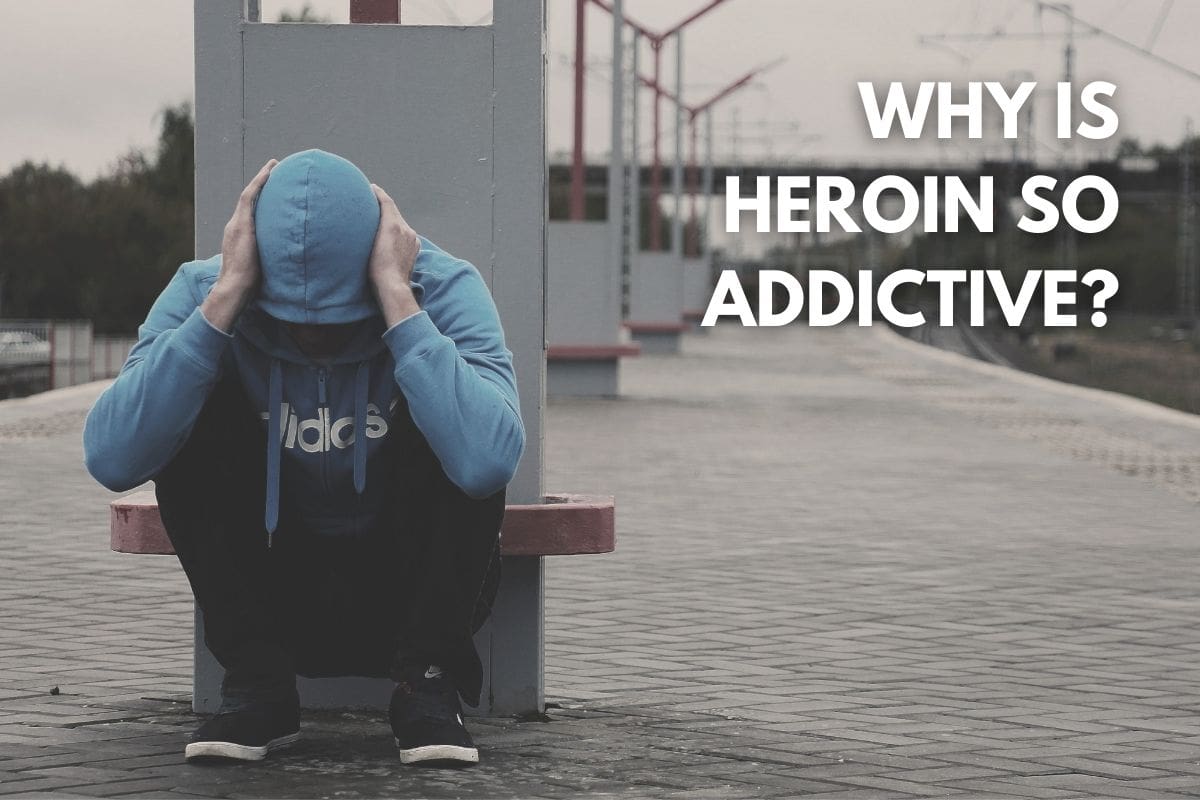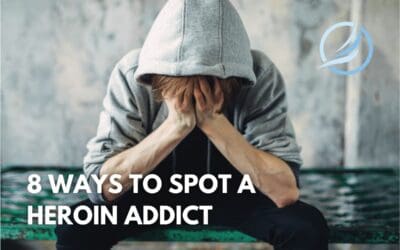Heroin is an illegal drug that activates opioid receptors in the brain to block feelings of pain. It can also produce relaxation and an out-of-body sensation. Most users experience a sense of euphoria while taking the drug, which is why heroin is so addictive. According to the American Society of Addiction Medicine (ASAM), a quarter of heroin users will become addicted to the drug.
How Addictive is Heroin?
Dependence and addiction to heroin occur rather quickly with regular use. In 2016, over 600,000 people in the United States had a heroin use disorder. Because heroin is so quick in acting on the brain, causing a fast and intense high, people can quickly develop tolerance to the drug. When this happens, people need to take more and more of the drug to feel the same effects. For regular heroin users, addiction is more likely. By then, they’ll engage in seeking and using behavior regularly.
Heroin Addiction Symptoms
When someone is addicted to heroin, their daily goal is basically to seek, use, and recover from heroin. Regular heroin use can result in various physical problems that may be very serious, including:
- Dry mouth
- Stomachaches
- Severe itching
- Clouded thinking
- Temporary euphoria
- Switching between being conscious and semi-conscious
In addition, people who combine heroin with other substances like alcohol can experience slowed breathing and even coma. Furthermore, long-term heroin addiction effects include:
- Insomnia
- Damage to the tissue inside the nose
- Infections
- Constipation
- Liver and kidney disease
- Lung problems
- Depression
- Sexual problems
All in all, heroin is a very dangerous drug, especially heroin bought on the stress. In most cases, street heroin contains a mix of different substances, including fentanyl. These substances can be toxic and lead to permanent organ damage and potentially death. Not to mention, intravenous heroin users also increase the risk of HIV and hepatitis.
Heroin Addiction Treatment
Although heroin is highly addictive, heroin addiction can be managed. Most people start their journey in a detox facility. There, patients are managed through their withdrawal process to prevent withdrawal consequences. In treatment, some patients may benefit from medications approved to treat opioid addiction. These medications lessen opioid withdrawal symptoms and can even prevent future heroin use.
Detox
Detox from heroin is best done in a medical center. Most users will start experiencing symptoms within 6-12 hours of their last dose. In most cases, withdrawal symptoms will subside within ten days. Nonetheless, having medical assistance and guidance can help people manage any intense symptoms throughout this process.
Rehab
While detox can be highly effective at helping people (safely) quit heroin, it’s by far the last step in the recovery journey. Long-term rehab is the best addiction treatment and the right rehab program for your needs.
Sources:

































